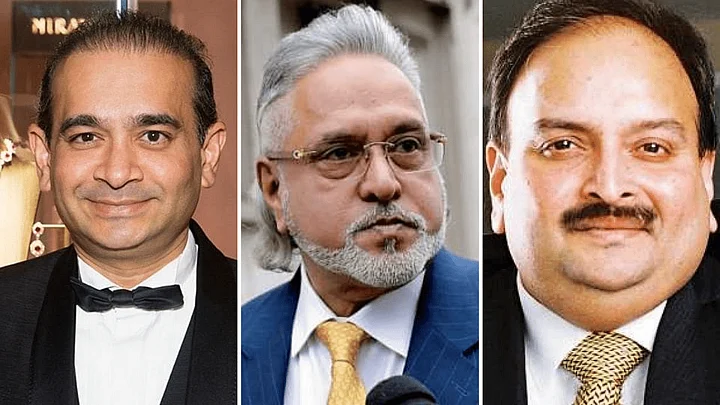Solicitor General Tushar Mehta on Wednesday, 23 February, informed the Supreme Court that Rs 18,000 crore have been returned to the banks in the case of Vijay Mallya, Nirav Modi, and Mehul Choksi.
Mehta, representing the Centre, submitted before a bench headed by Justice AM Khanwilkar that the total proceeds of crimes in the Prevention of Money Laundering Act (PMLA) cases pending before the top court amounts to Rs 67,000 crore.
He further added that as on date, 4,700 cases are being investigated by the Enforcement Directorate and the number of cases taken up for investigation each year in the last 5 years varies from 111 cases in 2015-16 to 981 in 2020-21. Mehta submitted before the bench that Rs 18,000 crore have been returned to the banks in the case of Vijay Mallya, Nirav Modi, and Mehul Choksi.
He added, "Very small number of cases are being taken up for investigation under the PMLA as compared to annual registration of the cases under the Money Laundering Act in the UK (7,900), the US (1,532), China (4,691), Austria (1,036), Hong Kong (1,823), Belgium (1,862) and Russia (2,764)".
Mehta emphasised that the measures against money laundering have clearly left the embryo of drug or terrorism related offences and moved beyond the same.
"Further, the efforts against money laundering have consistently advocated to include the widest range of predicate offences in the domestic laws."Solicitor General Tushar Mehta
Over the past few weeks, a battery of senior advocates, including Kapil Sibal, Abhishek Manu Singhvi, Mukul Rohatgi, Sidharth Luthra, Amit Desai, and others have made submissions before the top court on various aspects related to the potential misuse of PMLA provisions introduced by way of amendments to the act.
The law has been criticised on various aspects: stringent bail conditions, non-communication of grounds of arrest, arrest of persons without supply of ECIR (akin to FIR), broad definitions of money laundering and proceeds of crime, and statements given by accused during investigation made admissible as evidence during trial.
(At The Quint, we question everything. Play an active role in shaping our journalism by becoming a member today.)
